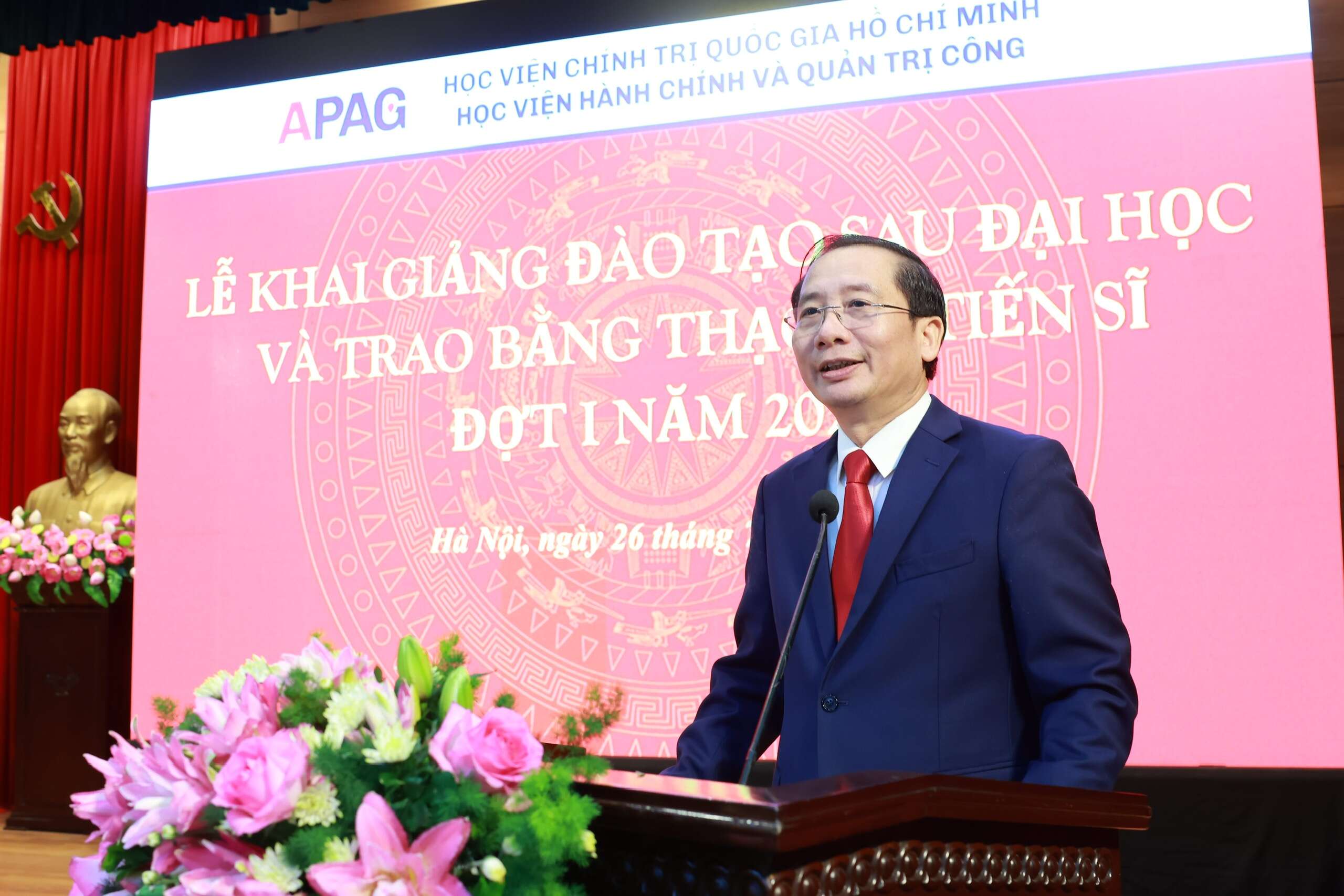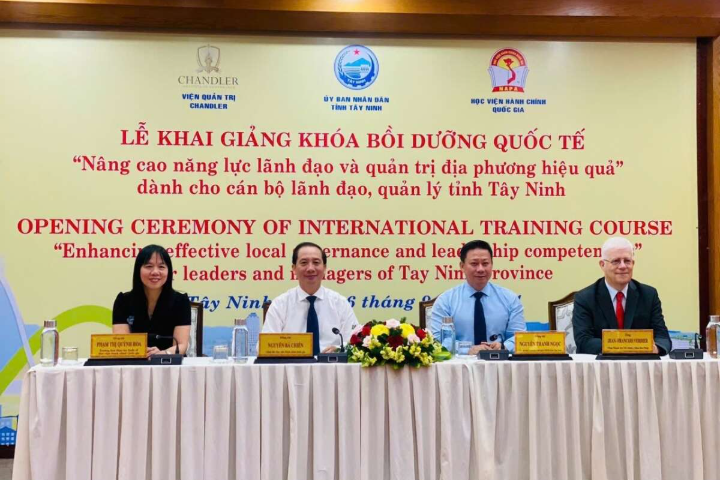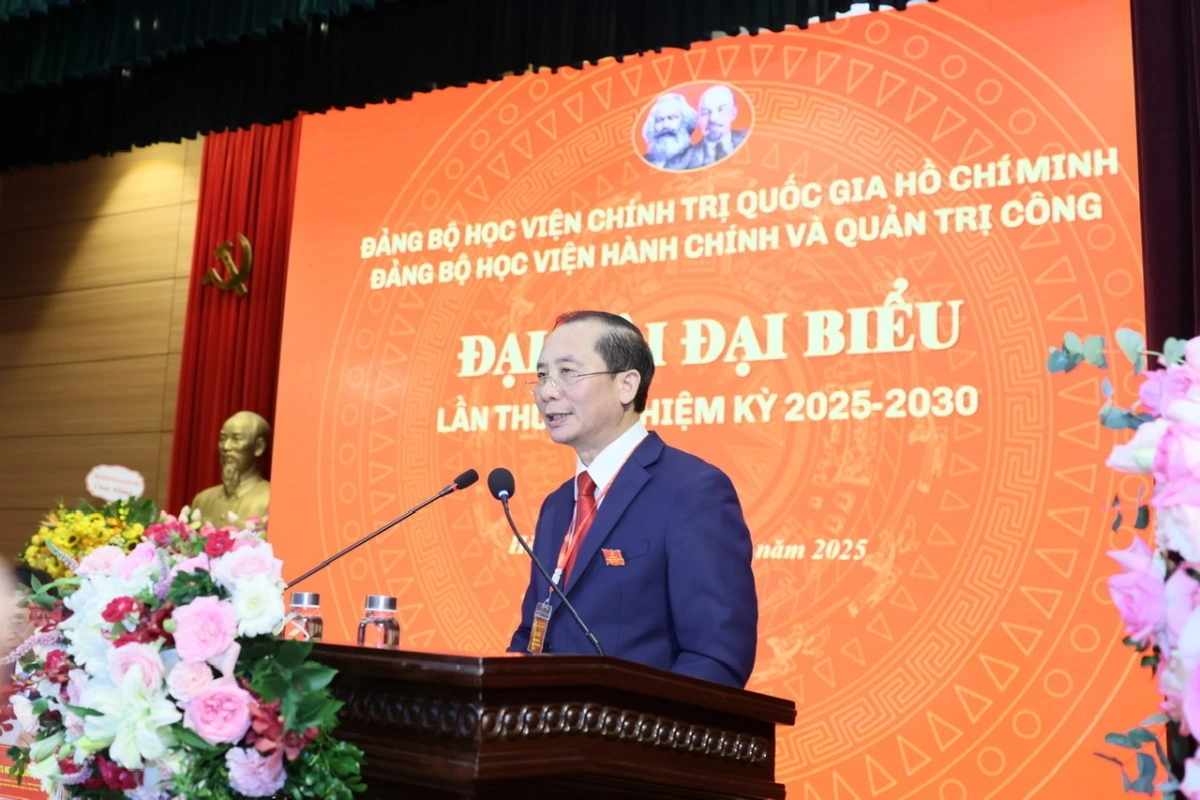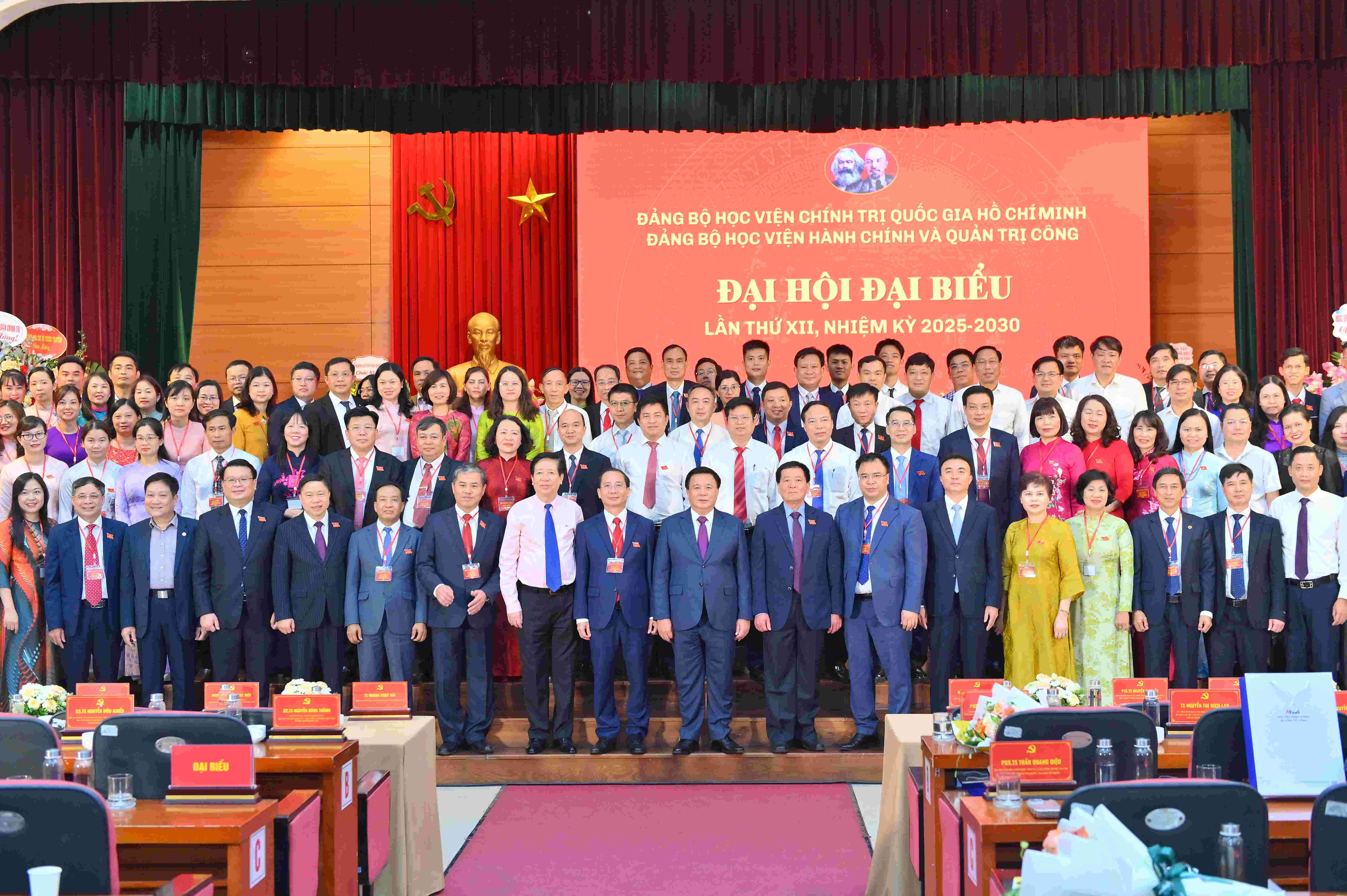Over the past 80 years, since President Ho Chi Minh read the Declaration of Independence proclaiming the birth of the Democratic Republic of Viet Nam, every development strategy and policy has stemmed from the overarching goals of safeguarding independence, protecting sovereignty, ensuring national unity and territorial integrity, guaranteeing freedom, human rights, and bringing happiness to the people.
This was the affirmation made by Assoc. Prof. Dr. Nguyen Ba Chien, President of the Academy of Public Administration and Governance (APAG), in an interview with the online newspaper Voice of Viet Nam (VOV).
Breakthroughs in institutions and governance methods are essential
VOV: The 6th National Congress of the Communist Party of Viet Nam in 1986 adopted the policy of Doi Moi (Comprehensive Renovation), considered a historic turning point in national construction and defense. How did this decision change the country, particularly the lives of the people?
Assoc. Prof. Dr. Nguyen Ba Chien: With the spirit of “Looking straight at the truth, evaluating the truth correctly, and speaking the truth clearly,” the 6th National Congress of the Party charted a comprehensive renovation path with historic decisions that created a turning point for development. These included: innovating thinking - first and foremost economic thinking - by shifting from a centrally planned, bureaucratic, subsidy-based mechanism to a multi-sector commodity economy with state management; launching three national target programs (food production, consumer goods, and exports); reforming economic management (accounting, prices-wages-currency), streamlining administrative apparatuses, promoting the principle of “the people know, the people discuss, the people do, the people supervise”; and opening the country to international trade and cooperation.
The Doi Moi shifted people from being “under state management” to becoming masters of their own destiny, guided by the principle: “The Party leads, the State governs, the people are the masters.” Citizens gained access to the market, freedom to start businesses, and autonomy and creativity in economic and social life.
 Assoc. Prof. Dr. Nguyen Ba Chien, President of APAG, delivers a speech at the opening ceremony of postgraduate training and the conferment of master’s and doctoral degrees in 2025.
Assoc. Prof. Dr. Nguyen Ba Chien, President of APAG, delivers a speech at the opening ceremony of postgraduate training and the conferment of master’s and doctoral degrees in 2025.The “liberating” decisions of the 6th Congress generated comprehensive momentum across the economy, politics, culture, and society: ending shortages and ensuring smooth circulation of goods; a breakthrough in agriculture, leading to Viet Nam’s first rice exports in 1989; dynamic growth of the private sector; high growth throughout the 1990s; significant reductions in poverty and hunger; marked improvements in living standards and in education and healthcare indicators; and strong public trust in the Party’s Renovation policy. The World Bank and other international organizations have recognized that the reforms initiated in 1986 transformed Viet Nam from one of the world’s poorest nations into a lower-middle-income economy. In 2024, Viet Nam’s GDP per capita reached approximately USD 4,700. The country’s Human Development Index (HDI) in 2023 was 0.766, placing it in the category of “High Human Development,” ranked 93rd out of 193 countries and territories.
VOV: At the 13th National Congress in 2021, the Party of Viet Nam emphasized the policy of “Renewing national governance toward modernity and effectiveness.” Could you please share your thoughts on the necessity of building modern and effective national governance to enable Viet Nam to enter a new era – the era of nation’s rise?
Assoc. Prof. Dr. Nguyen Ba Chien: In Viet Nam, modern and effective national governance is understood as the process by which the State of Viet Nam - under the leadership of the Communist Party of Viet Nam - plays a central role, while relying on universal principles and norms of good governance. It employs appropriate tools, instruments, and methods to mobilize all resources in society and engage diverse stakeholders in formulating and implementing policies and strategies in political, economic, cultural, and social domains, thereby steering the nation toward modern and effective development.
In the Political Report of the 13th National Congress, the phrase “national governance” was mentioned seven times for the first time. This underscores the Party’s vision of the critical importance of national governance for the country’s development. The Party and the State of Viet Nam are deeply concerned with advancing governance in a modern and effective manner. In the context of profound transformations in global, regional, and domestic situations, renewing governance along these lines is not merely a political orientation; it has become an urgent imperative for Viet Nam’s development. This necessity stems from several reasons:
First, the challenge of overcoming the middle-income trap. After nearly four decades of Doi Moi, Viet Nam has achieved remarkable results, with an average annual economic growth rate of 6.6% between 1986 and 2023. By 2025, the economy is projected to exceed USD 500 billion in size, ranking 30th globally, and per capita income is expected to surpass USD 5,000. Viet Nam took about 15 years to move from a lower-middle-income country (since 2009) to the threshold of upper-middle-income status.
Viet Nam has set the goal of becoming a high-income, developed nation by 2045, which is a shared aspiration of the entire Party and people for a strong and prosperous country and a happy people. However, according to the World Bank, in the past 30 years, only 34 countries have managed to escape the middle-income trap, while 108 others remain stuck.
 Assoc. Prof. Dr. Nguyen Ba Chien (in white shirt) at the opening of the international training program “Enhancing Leadership and Effective Local Governance Capacity” for provincial leaders and managers of Tay Ninh province.
Assoc. Prof. Dr. Nguyen Ba Chien (in white shirt) at the opening of the international training program “Enhancing Leadership and Effective Local Governance Capacity” for provincial leaders and managers of Tay Ninh province.Thus, if Viet Nam continues to rely on its current governance approach (depending on cheap labor, natural resource exploitation, and raw exports), it will be very difficult to break free from the middle-income trap. Viet Nam must innovate its governance methods to create new growth drivers by stimulating creativity, fostering innovation, and mobilizing the full potential of all societal actors.
Second, the impact of the Fourth Industrial Revolution (Industry 4.0) and the digital era. Industry 4.0 is fundamentally transforming not only the economy but also the way societies are organized, governments operate, and governance is conducted. Big data, artificial intelligence, cloud computing, and the Internet of Things have become the new foundations for management, production, and administration in the digital age.
In this digital environment, the ability to connect, analyze, identify issues, and make real-time, data-driven decisions will replace traditional governance methods based on experience and administrative orders. Bureaucratic inertia, fragmentation, and overlap within the system not only slow down development but also heighten the risk of rapid backwardness. A modern government must be an intelligent, interconnected, and digitized system, placing citizens at the center of every policy.
Industry 4.0 presents countries with the opportunity to leap forward through technology adoption, but it may also leave nations behind if they fail to capitalize on scientific and technological advances. This requires national governance that is modern and effective, with visionary leadership, breakthrough thinking, concentrated resources, and adaptive governance methods.
Third, the uncertain global environment requires not only “managing change” but also “changing the way governance is conducted.”
The United Nations Human Development Report 2021/2022 clearly stated that the era confronting nations today is one of “Uncertain Times, Unsettled Lives, and Shaping our Future in a Transforming World.” This compels each country to enhance governance capacity that is flexible, adaptive, and resilient.
“Opportunities will pass swiftly, time will not wait for us, demanding strategic decisiveness and urgency in action.”
Viet Nam is among the five countries most affected by climate change. In 2024 alone, Typhoon Yagi caused economic damage exceeding VND 88.7 trillion, equivalent to 0.62% of GDP in 2023, reducing GDP growth in 2024 by about 0.24%, killing 320 people, leaving 25 missing, and damaging thousands of homes.
According to forecasts, Viet Nam has only about 10 years left before the end of its demographic dividend (by 2036). Viet Nam also has only 20 years to achieve the feat of becoming a developed, high-income country by 2045.
Opportunities will pass swiftly, time will not wait for us, demanding strategic decisiveness and urgency in action. Without systemic innovation in governance, Viet Nam will fall into the situation of “growing old before becoming rich.” At that point, the burden of social welfare and other societal challenges will accelerate the slide into the “middle-income trap.”
Viet Nam is entering a pivotal stage in its process of economic institutional transformation and in renewing the organization and functioning of the political system. The shift from a management role to one of facilitation, service, and partnership is inevitable; the private sector has been affirmed as the most important driver of economic growth. Therefore, breakthroughs in institutions and governance methods are needed to mobilize collective strength for national development.
New norms cannot be addressed with old mindsets and familiar approaches. We face many challenges, but an even greater challenge is to apply outdated methods to resolve unprecedented problems. For this reason, in the Documents of the 13th National Congress of the Communist Party of Viet Nam, “Innovating national governance towards modernity and efficiency” has been identified as a breakthrough solution, as well as a task and orientation for realizing the aspiration and goal of making Viet Nam a developed, high-income country by 2045.
“The greatest aspiration of humankind is to enjoy the right to life, the right to freedom, and the pursuit of happiness. The responsibility of the State of Viet Nam is to realize the goal of ensuring the people’s right to life, right to freedom, and right to pursue happiness. The principle of ‘the people are the root’ runs throughout the Party’s and the State’s policies, embodied in the principle that all power belongs to the people, the State serves the people, and the satisfaction and happiness of the people is the measure of success in national governance.” - Assoc. Prof. Dr. Nguyen Ba Chien
The people’s happiness as the supreme goal
VOV: In the Party’s congress documents, especially the documents of the 13th National Congress, the Party emphasizes placing the people at the “center, the subject, the goal, and the driving force of development.” How should this objective be reflected in national governance towards modernity and efficiency, in your opinion?
Assoc. Prof. Dr. Nguyen Ba Chien: In modern and effective national governance, the people are at the center, and the happiness of the people is the supreme goal of all policies and laws. When formulating policies and laws, the perspective must shift from focusing on establishing “obligations” to prioritizing the establishment of provisions that “protect and guarantee rights” of all stakeholders. This means ending the outdated “asking-giving” mindset, which often breeds bureaucracy, harassment, and corruption in public administration, and replacing it with a “demand-response” mindset, oriented towards providing public services that meet the satisfaction of both citizens and businesses. It also promotes a cooperative and sharing relationship between the State and other societal actors.
Each public servant and public institution, when exercising state authority, must internalize the perspective that implementing policies and laws is not only a matter of “official duty” but, more importantly, a matter of “responsibility to serve” the people and society. Institutions must be established on the principle that the State and public servants are only permitted to do what the law explicitly stipulates, while citizens are free to do anything not prohibited by law. This will put an end to the restrictive mindset of “what cannot be managed must be prohibited,” thereby fostering development.
Modern national governance must ensure a harmonious linkage between the State, society, and the market. The State plays the central role, creating the legal framework and institutional mechanisms, setting out transparent “rules of the game” so that all actors can participate in national development. Citizens, businesses, and social organizations are not merely subjects of management, but partners who share responsibility for the common good.
In the new era, the role of the people must go beyond mere compliance with the law and be affirmed in their rights to oversight, criticism, and contributions to development policies. To realize this, it is essential to establish legal mechanisms that guarantee transparency of information, government accountability, and the people’s right to oversight. When the voices of the people are heard and responded to seriously, a two-way dialogue channel between the State and society will be formed, strengthening trust, consensus, and the power of great national solidarity.
The proactive participation of the people will protect public interests, prevent corruption and abuse of power, while fostering balance and harmony in the process of realizing the nation’s sustainable development goals.

The State manages and serves, accompanies, and creates favorable conditions for people’s comprehensive development. Modern and effective national governance aims to meet expectations, secure consensus, and bring happiness to the people. Governance effectiveness is not only reflected in economic indicators but also measured by the levels of satisfaction, benefits, and happiness of the people throughout the policy-making, implementation, and evaluation process.
Therefore, the design of policies and laws should establish criteria of safety, well-being, friendliness, and humaneness, ensuring citizens’ rights to access essential public services. In particular, attention should be given to the following aspects:
The design of policies and laws must guarantee that people benefit from fundamental needs in healthcare, education, culture, and social welfare; that no one is left behind or falls behind in the nation’s common development; and at the same time, foster a fair environment and create opportunities for each individual to be creative and develop comprehensively in line with their own abilities and conditions.
Citizens must be given every favorable condition to participate in governance activities. The State has the responsibility to ensure both legal and practical mechanisms to realize effectively the principle: “The people know, the people discuss, the people do, the people inspect, the people supervise, and the people benefit.” People should be able to easily exercise their right to express opinions and contribute feedback to policies and laws. Governments listen, understand, and provide accountability for the people’s ideas and policy initiatives.
The resources of the people and society constitute the greatest and most important resources. Rising above differences, modern and effective national governance mobilizes all national resources and engages every actor in society in pursuit of the shared aspiration and vision of national development.
 Assoc. Prof. Dr. Nguyen Ba Chien with delegates at the 12th Congress of the Party Committee of APAG, term 2025–2030.
Assoc. Prof. Dr. Nguyen Ba Chien with delegates at the 12th Congress of the Party Committee of APAG, term 2025–2030.VOV: We are carrying out a reform to streamline the organizational structure of the political system. Speaking at the 12th Plenum of the 13th Party Central Committee, Party General Secretary To Lam affirmed that both the political system and the administrative system are being operated towards organizational innovation, improving governance quality, promoting scientific management, reducing intermediaries, eliminating overlapping functions, and bringing the government closer to the people to serve them better. This is also a renewal of national governance in a modern and effective direction, isn’t it?
Assoc. Prof. Dr. Nguyen Ba Chien: Exactly. The directive of Party General Secretary To Lam at the Plenum clearly reflects the trend of renewing national governance in a modern and effective direction.
The comprehensive restructuring of the apparatus across the entire political system, in line with the Party General Secretary’s directive, aims to maximize the value created and improve the quality of public service delivery. The design and operation of the apparatus within the political system must be based on principles of methodological organization, aligned with practical realities, and ensure the optimal efficiency of the entire system. In particular, the design must ensure that each public organization within the system is placed in the right position, with the right role and the right function, so that the state apparatus truly generates value and fosters the sustainable development of the nation.